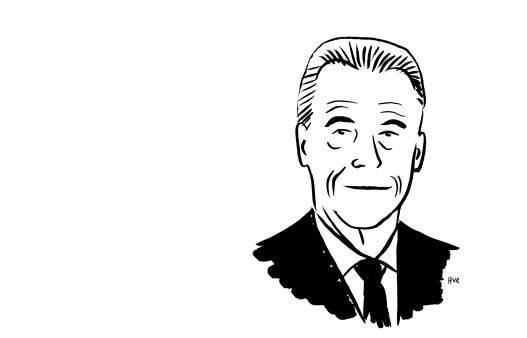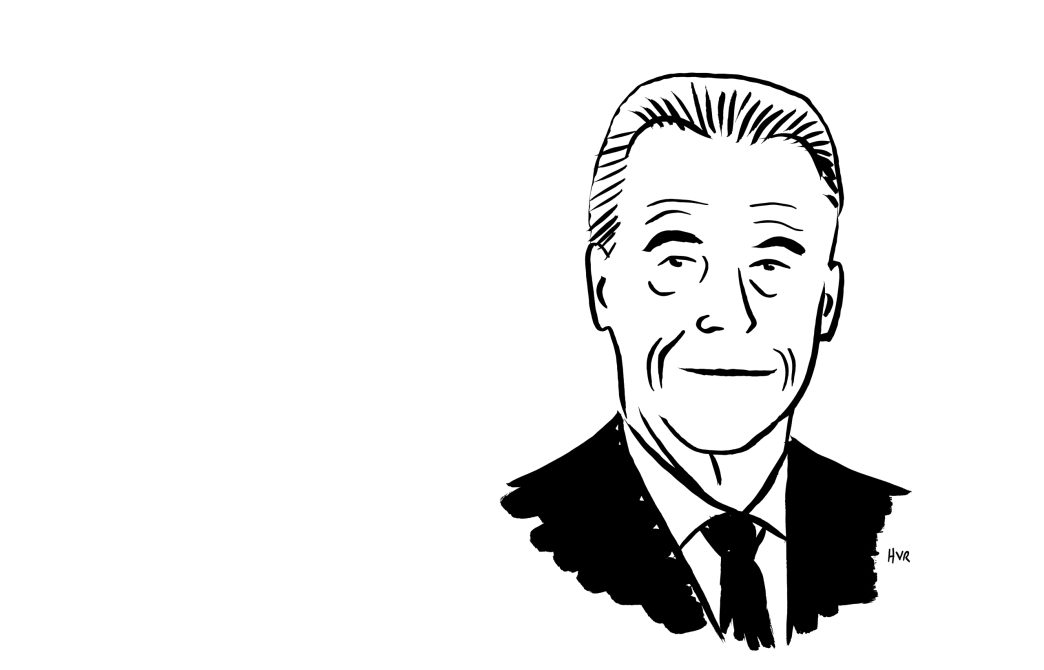Former Swiss Ambassador, former Chairman of the Foundation for the History of the Swiss in the World.
Guillaume de Sardes: Since his election, President Donald Trump has been seeking to resolve the conflict that has opposed Russia and Ukraine since 2014. Negotiations appear to be progressing rapidly. After a long telephone call between the President of the United States and the President of the Russian Federation, an initial high-level meeting took place in Riyadh between Marco Rubio and Sergei Lavrov. They are continuing in the capital of Saudi Arabia, far from Europe where the conflict is taking place. How do you interpret this paradox?
Rodolphe Imhoof: First of all, we need to clarify what kind of negotiations we are talking about. I wonder whether Donald Trump is really seeking to resolve the conflict, or simply to derive political or economic benefit from the cessation of hostilities. Resolving a conflict is not simply putting an end to the war. It is a much more complex process, involving reconstruction, rebuilding relations between nations and reconciling the parties involved. Trump’s aim seems to me to be to obtain the label of ‘man of peace’. He is going for the simplest, quickest solution, without seeking to bring together the conditions that could enable the warring nations to live side by side in the long term. What we are witnessing is political manoeuvring. Trump seems to want to please Russia at the expense of the Ukrainians and the Europeans. To achieve this, he is prepared to impose peace by ceasing to supply arms to Ukraine. But an imposed peace is never a fair or long-lasting peace.
You’re suggesting that Trump could bring a ceasefire but not a genuine peace agreement, is that correct?
Exactly. A ceasefire can be imposed, particularly by powers that guarantee it, but that does not mean that a peace agreement has been signed. Think of the Korean case: we do have a cessation of hostilities between North and South Korea, but there is still no peace agreement, even after decades. The two countries hardly enjoy friendly relations or good neighbourhood, whether political or commercial. This type of situation, where war ends without any real agreement being signed, creates a rift between states and people that can last for a long time. Under these conditions, war is more likely to start again.
Could you remind us of Switzerland’s position on the conflict between Russia and Ukraine, which is supported by the West and its allies?
Switzerland defends a foreign policy based on respect for international law. It constantly reminds the world that war, as waged by Russia, violates the UN Charter. It is important to understand that Switzerland, as a neutral state, is not involved in any military alliances – it is not a member of NATO – but this does not prevent it from working to preserve international law. One of Switzerland’s essential missions is to defend the principles of non-aggression and the protection of civilian populations.
In June 2024, Switzerland organised a peace conference for Ukraine to which Russia was not invited. Do you think this was a mistake, which explains why today discussions between the Americans and the Russians are held in Saudi Arabia rather than in Switzerland?
You mentioned the conference held in Bürgenstock, at which the Russians said from the beginning that they would not participate. In the circumstances, Switzerland chose not to formally invite them. Since Russia was not present, it could not be a peace conference in the strict sense of the term. Instead, the discussions focused on the way forward, the framework and the future conditions for the reconstruction of Ukraine. Symmetrically, negotiations between the United States and Russia that exclude Ukraine are no more likely to lead to a fair and long-lasting peace. Everyone needs to talk to each other. Only an open dialogue on security and cooperation, and the development of measures to build mutual understanding and trust, can lead to peace. We saw this clearly during the Cold War through the role played by the CSCE, which was a multilateral forum for dialogue and negotiation between the Eastern and Western blocs.
Following on from my previous question, do you think that the spirit of the Swiss Federal Constitution, which states that the Federal Council and the Federal Assembly must ensure that neutrality is preserved, has been respected on this occasion?
I would like to remind that neutrality is not a goal in itself, but a means to an end. It is the main instrument of Swiss foreign policy. We are a small country embedded in European culture, which does not prevent us, as every country does, from defending our own interests while staying out of conflicts. Swiss neutrality is not a passive position, it is an active one. This means that Switzerland can play a positive role in conflict resolution by offering its territory as a forum for dialogue and by facilitating discussions between belligerents.
At the moment, even if the negotiations between Russians and Americans over Ukraine are taking place elsewhere, this does not prevent these same Russians and Americans from meeting in Switzerland to discuss other issues. The war in Ukraine is just one aspect of their relationship.
Generally speaking, do you think that Switzerland’s policy of neutrality should be defended and preserved, or should it be abandoned? What are the advantages and disadvantages? To put this question in context, some people have said that Switzerland should have committed itself more fully to the European Union during the war.
Neutrality is a fluctuating concept. Swiss policy can change over time. During the Second World War, Switzerland’s approach was different from that of today. What seems important to me, beyond the fluctuations imposed by time and the political context, is that to be credible, neutrality cannot afford to be weak. It must be defensible. Today, Parliament would like to increase the defence budget by CHF 2 billion. That’s a considerable sum, but I think it’s justified in the circumstances.
Do you see Ukraine’s neutrality as a solution to the conflict?
This is a complex question. Neutrality is a legal principle which presupposes that, on the one hand, the neutral state does not get involved in conflicts, but that, on the other hand, it can defend this neutrality with arms, if necessary. From this point of view, Russia’s demand for a neutral and unarmed Ukraine does not seem to me to respect the spirit of neutrality. For neutrality to be effective and credible, the security of the state in question must be guaranteed.

